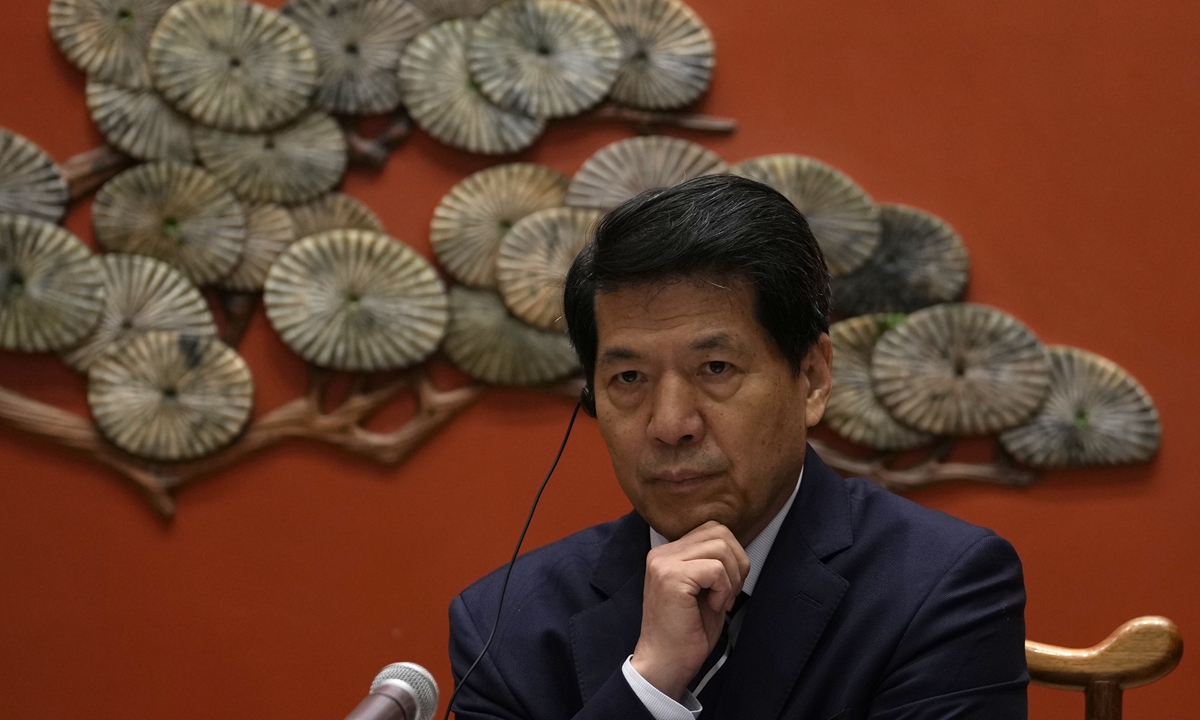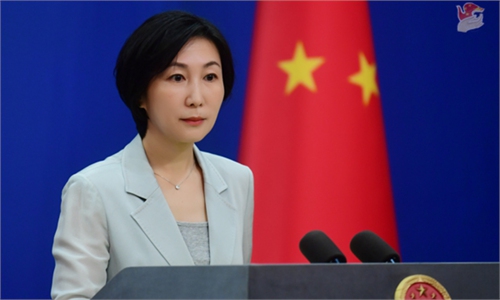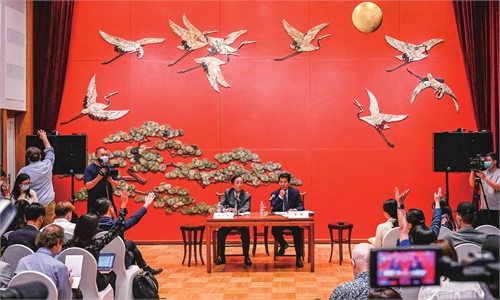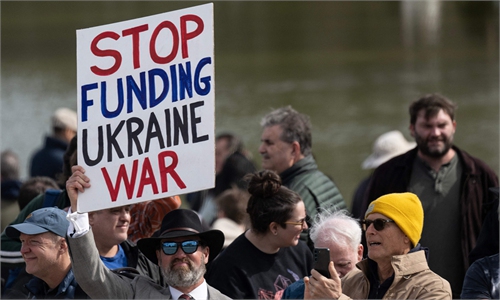
Special Representative of the Chinese Government on Eurasian Affairs Li Hui File photo:VCG
Special Representative of the Chinese Government on Eurasian Affairs Li Hui concluded his visit to Ukraine on Thursday as part of the second round of shuttle diplomacy on the Ukraine crisis contributing to China's mediation efforts to cool down regional tensions. On the same day, the US provoked tensions by welcoming Sweden's official entry into NATO.
Analysts stated that while China, as a major power, attempts to listen to both sides and contributes efforts to alleviating regional tensions, the US continues to pursue its bloc politics, resulting in heightened complexity and tensions in the security situation in Europe, forming two different approaches in dealing with global security.
According to a brief introduction posted by China's Foreign Ministry on Friday, Li held "frank and friendly talks" with Andriy Yermak, head of the Ukrainian President's Office, Serhiy Kryvonos, First Deputy Prime Minister and Minister of Economy, and Dmytro Kuleba, Minister of Foreign Affairs, on China-Ukraine relations and the Ukrainian crisis.
Among the attendees were the Chinese Ambassador to Ukraine, Ukrainian Ambassador to China, and Ukrainian Deputy Minister of Energy. Hours later on Thursday afternoon, Li left Kiev by train, according to the ministry.
"We appreciate the partnership with China and hope that today's talks will be another step toward deepening and strengthening our relations," Yermak said, according to a statement on the Ukraine Presidential Office's website.
During the meetings, the Ukraine Presidential Office said that the Ukraine side briefed the Chinese delegation on the situation on the battlefield, discussed the prospects for establishing peace for Ukraine and restoring the territorial integrity and sovereignty of Ukraine.
"China serves as an impartial mediator between the two sides, bridging the gap and facilitating dialogue when direct talks are not possible," Sun Zhuangzhi, the head at the Institute of Russian, Eastern European and Central Asian Studies of the Chinese Academy of Social Sciences, told the Global Times on Friday.
At the current stage, with the two sides embroiled in deep hostility due to disagreements over a few very basic things, China's role as a mediator is essential to delivering the messages from the two sides to each other and paving the way for a peaceful resolution, Sun noted.
On the issue of Ukraine, Chinese Foreign Minister Wang Yi stressed China's position at a press conference Thursday on the sidelines of the second session of the 14th National People's Congress. He said that China has always adhered to an objective and impartial position, insisting on promoting peace and dialogue.
However, as China works to stabilize the situation in Europe, US President Joe Biden expressed his support for the expansion of NATO on Thursday, stating that the "shield against aggression and fear of aggression" and transatlantic security is stronger than ever with the formal addition of Sweden to the military alliance. He also referred to the bloc's expansion as a response to Russia's provocation.
Media reports also said that NATO is in the middle of an unprecedented training exercise that will test the alliance's ability to quickly deploy forces and its new defense plans.
The US has been the dominant power in the European security field, with its zero-sum approach to bloc politics seen as a contributing factor to the Ukraine crisis. Despite ongoing risks of escalation, the US persists in pursuing its bloc politics, leading to increased complexity and tensions in the security situation in Europe, according to Zhang Hong, an associate research fellow at the Institute of Russian, Eastern European and Central Asian Studies of the Chinese Academy of Social Sciences.
Analysts believe that the US role as an international affairs provoker forms a sharp contract with China's role as a constructive mediator.
China has a different approach to global security compared to the US. As a major power, China aims to reduce tensions, prevent violence, and prevent the crisis from escalating further. In its role as a mediator, China respects Ukraine's sovereignty and territorial integrity while also taking into consideration Russia's security concerns, Zhang told the Global Times.
Sun pointed out that the paradox for the continent lies in the fact that NATO members in the region may not actually benefit from the bloc's expansion, but may instead find themselves in direct conflict with Russia as the country feels increasingly insecure. This situation plays into the hands of the US, which thrives on such conflicts to exert its influence in the region.
Europe, on the other hand, is facing a dilemma of mutual distrust and heightened security concerns. The upcoming NATO military exercise is likely to exacerbate tensions and deepen mistrust between the two sides, potentially leading to further frictions, Sun said, calling on European nations to truly establish a balanced, effective, and sustainable security framework that benefits the continent.



